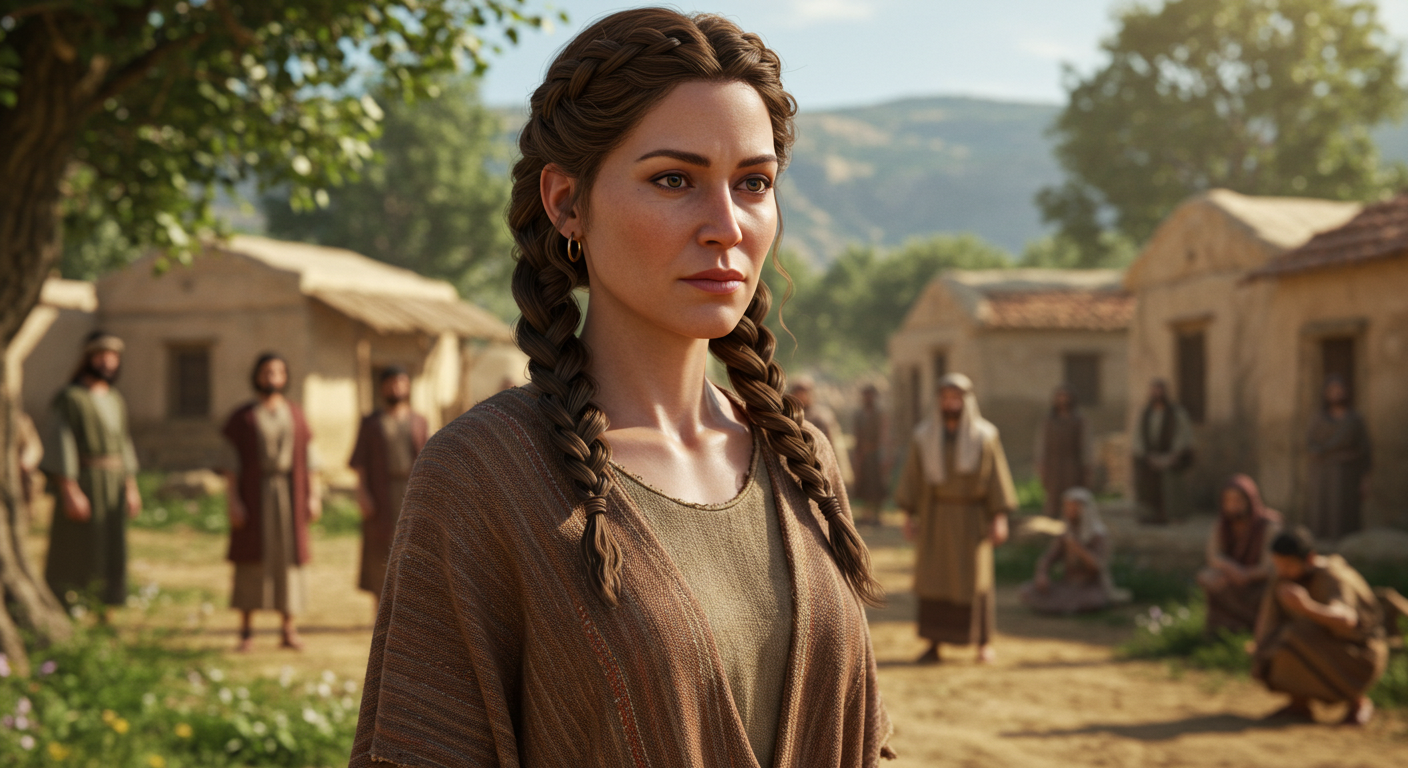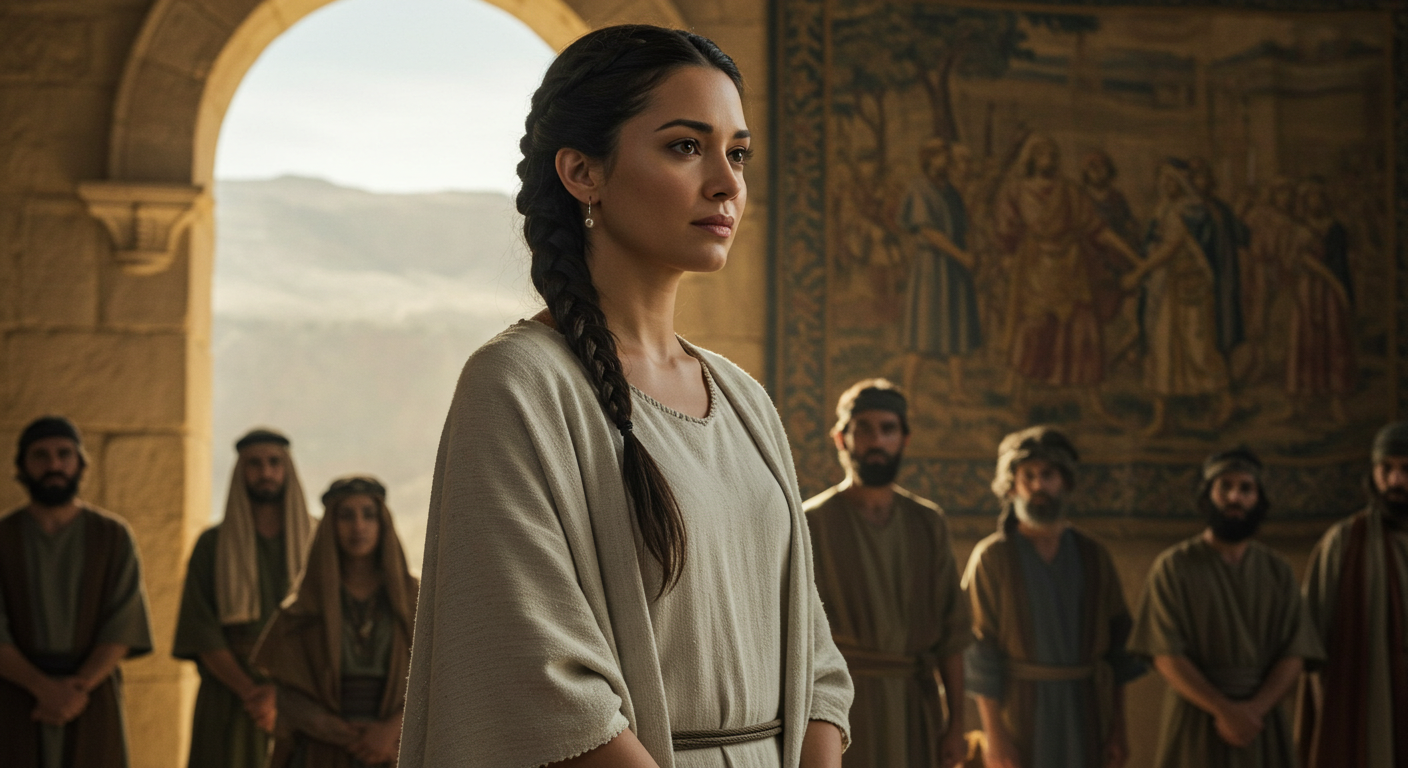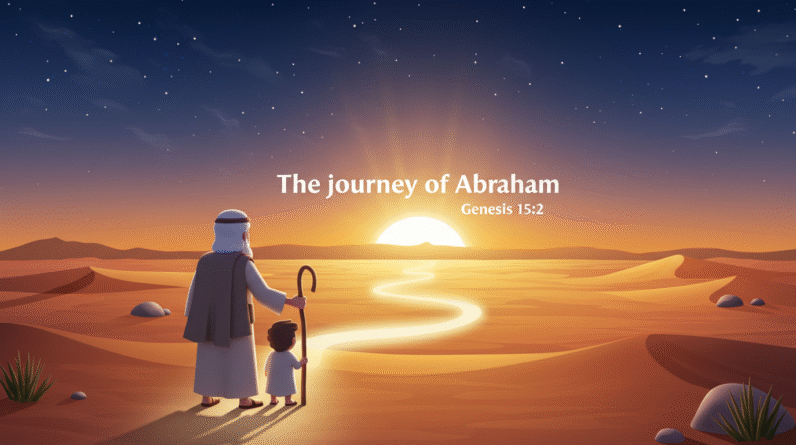Explore Deborah’s story in Judges 4:1-10, where wisdom and courage meet power. Discover timeless lessons of leadership and faith in this riveting biblical tale.

Deborah: Judge Of Israel – Judges 4:1-10
Introduction
In a time when the Israelites were oppressed and leaderless, a woman of unparalleled wisdom and courage stood as a beacon of hope and deliverance. Her name was Deborah, and she was a prophet, judge, and warrior whose life and leadership left an indelible mark on the biblical landscape. Unlike other judges who were primarily military leaders, Deborah’s role was multi-faceted, extending her influence into spiritual and judicial realms. The story of Deborah offers a profound glimpse into the life of a female leader who defied societal norms, championed justice, and inspired a nation toward freedom. This story, as captured in Judges 4:1-10, presents timeless lessons of faith, courage, and wisdom for today’s world.
Their Story in the Bible
Deborah’s story unfolds in the backdrop of a tumultuous time for the Israelites. After Ehud’s death, the Israelites once again fell into evil practices, resulting in their subjugation by Jabin, a Canaanite king (Judges 4:1-2). Sisera, the commander of Jabin’s army, oppressed them for twenty years with an iron-fisted reign, boasting a chariot force of iron-clad warriors. It was during this dire period that Deborah emerged as a judge over Israel, offering counsel and delivering justice under a palm tree between Ramah and Bethel in the hill country of Ephraim (Judges 4:4-5).
Recognizing Israel’s plight, Deborah summoned Barak, son of Abinoam, and conveyed a divine command: to take ten thousand men and lead them to Mount Tabor, for it was there God promised to give Sisera into Barak’s hands (Judges 4:6-7). Despite the clarity of God’s command, Barak was hesitant and requested Deborah’s presence on the battlefield, underscoring his dependency on her spiritual leadership (Judges 4:8). Deborah agreed to accompany him but prophesied that the honor of victory would go to a woman, foreshadowing the role of Jael later in the narrative (Judges 4:9).
Lessons from Their Life
Deborah’s story offers a wealth of lessons, each rooted in her unwavering faith and unparalleled leadership. First and foremost, Deborah exemplifies the power of spiritual discernment and obedience to God’s call. Her ability to listen to and act upon divine guidance not only altered the course of her people’s history but also demonstrated the strength found in aligning one’s life with God’s will. In a world often filled with noise and distraction, Deborah’s story invites you to seek clarity and purpose through faith.
Another significant lesson from her life is the importance of empowerment and collaboration. Deborah’s collaboration with Barak highlights the potential of shared leadership, where diverse strengths and capacities come together for a common purpose. It echoes the modern value of inclusivity and underscores the idea that leadership is a shared journey, enriched by trust and respect. Deborah’s encouragement to Barak reminds you that sometimes leadership means walking alongside others, not in front of them.
Finally, Deborah’s life teaches the virtue of courage in the face of daunting challenges. Her willingness to step into roles traditionally held by men, courageously addressing the plight of her people, echoes the timeless call to stand courageously for justice and truth. Her narrative challenges you to confront your own fears and assumptions, inviting you to lead with integrity and conviction, regardless of gender or societal constraints.
Connection to Today’s World
Deborah’s story resonates deeply with contemporary issues, particularly in the realms of leadership, gender equality, and justice. In an era where women continue to fight for leadership roles traditionally assigned to men, Deborah’s life stands as a testament to the transformative power of female leadership. She offers a bold reminder that leadership is not defined by gender but by one’s capacity to inspire, guide, and uplift others.
The narrative also connects with modern discussions surrounding moral courage and ethical leadership. In a world full of injustice and oppression, Deborah’s story serves as an inspiring reminder to act decisively in the face of wrong, driven by principles and a commitment to the greater good. For those facing personal or societal challenges, Deborah’s example provides a roadmap for courageous and principled leadership in times of crisis.
Ultimately, the story of Deborah encourages reflection on the importance of faith-driven action. Her narrative reminds you that true leadership often demands listening to the still, small voice of divine wisdom, challenging us to trust and act upon it in your own life’s journey. In doing so, you align with a legacy that inspires change and fosters hope in even the most unlikely circumstances.

Key Bible Verse
Among the compelling verses in Deborah’s story, Judges 4:9 stands out: “Certainly I will go with you,” said Deborah. “But because of the course you are taking, the honor will not be yours, for the Lord will deliver Sisera into the hands of a woman.” This verse poignantly encapsulates Deborah’s involvement and prophetic insight into God’s plan for Israel’s deliverance. It speaks volumes about the intersection of divine justice and human action, highlighting the unexpected ways God often works through seemingly unconventional means and individuals.
Thought-Provoking Question
As you ponder the legacy of Deborah, consider this: How can you cultivate the courage and wisdom to lead with integrity in your own life’s journey, and are you willing to act upon divine insights even when they challenge societal norms or personal expectations?
Historical/Cultural Context
Deborah’s story is deeply entrenched in the historical and cultural context of the Judges’ period, a time characterized by a cyclical pattern of sin, oppression, repentance, and deliverance. The social structure of ancient Israel typically reflected patriarchal norms, making Deborah’s position as a female judge all the more remarkable. Her leadership challenges contemporary assumptions about gender and power, offering a biblical precedent for women in positions of authority. This cultural nuance enriches your understanding of her significance and the profound impact of her narrative on both ancient and modern readers.
Comparison with Other Characters
When comparing Deborah with other figures in the Bible, her story aligns with the narratives of other unlikely leaders such as Moses, who, despite initial hesitations, led his people out of bondage. Like Moses, Deborah serves as an instrument of divine deliverance. Her collaboration with Barak mirrors the alliances formed by leaders throughout biblical history, emphasizing the strength found in unity and shared purpose.
Prayer
In reflection of Deborah’s inspiring journey, consider this prayer:
“Dear Heavenly Father, grant us the wisdom and courage to follow your calling, just as Deborah did. Help us to lead with integrity and trust in your divine guidance, regardless of the challenges we face. May your wisdom enlighten our paths, and may we inspire others through our faith-driven actions. Amen.”







